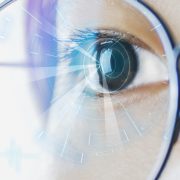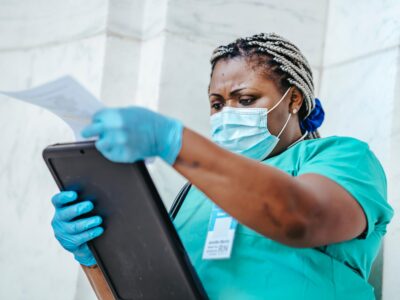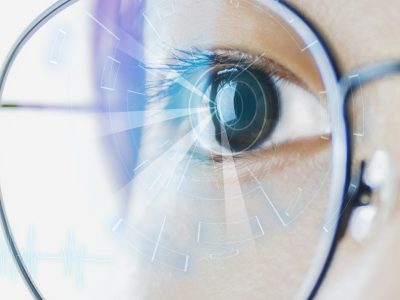We are a couple weeks into the vaccination process here in the U.S. and so far, things have been going smoothly. Millions of healthcare workers are still waiting for their first shot of either the Moderna or Pfizer vaccine for COVID-19, now that both drugs have been approved for emergency use by the FDA.
Many providers, as well as state and local officials, have been getting their vaccines on live TV to shore up support among those who remain distrustful of the process. We’ve seen several high-profile officials receive the drug on the air, including President-elect Joe Biden and infectious disease expert Dr. Anthony Fauci, as well as dozens of healthcare administrators and providers.
One video seems to be doing more harm than good when it comes to instilling trust in the COVID-19 vaccine. Tiffany Dover, a nurse manager at Catholic Health Initiatives Memorial Hospital in Chattanooga, Tennessee, recently took the vaccine on camera only to faint a few seconds later.
The video has since gone viral online with many people using it as an example of the possible dangers of the drug. But now Dover is setting the record straight. As it turns out, the fainting spell had nothing to do with the vaccine. In fact, she says she passes out all the time.
A Surprise Reaction
Many hospitals have been staging live news conferences to show the public and local government officials how the vaccine is being administered on the ground.
Catholic Health Initiatives Memorial Hospital took a similar approach. A local news crew was on hand to film hundreds of Tennesseans get their first shot of the drug, including Dover.
She gets the shot as usual, and then about 15 minutes later while speaking with the press, Dover can be heard saying, “I’m sorry, I’m feeling really dizzy.” She then fell into the arms of a doctor standing beside her.
Many people were quick to respond to and reshare the video on social media, writing comments that made it seem like the vaccine had caused her to faint. In many cases, the video seemed to trigger people’s underlying fears about the drug, including how their bodies may respond.
Clearing the Air
As soon as the video started attracting attention online, Dover knew she had to tell the truth about her experience.
She told the local news outlet that first recorded the scene exactly what had caused her to faint:
“I had a syncopal episode. I have a history of having an overactive vagal response, and so with that if I have pain from anything — hangnail or if I stub my toe — I can just pass out,” she said.
In another clip, she added, “[I] passed out probably six times in the past six weeks. It’s common for me.”
So, what is an overactive vagal response?
The vagus nerve is considered the largest and most complicated cranial nerve in the body. An overactive vagal response occurs when the person experiences pain, fear, or stress. For Dover, the slightest irritation can set it off, leading to a range of troublesome side effects.
Hospital officials were on hand to discuss her reaction to the vaccine.
As Dr. Jesse Tucker, the director of critical care medicine at CHI Memorial Hospital Chattanooga, explained, “It is a reaction that can happen very frequently with any vaccine, with a shot of any kind,” he said. “No reason to suspect that that’s due to the vaccine whatsoever.”
Dozens of Dover’s colleagues lined up to receive the shot as well, and none of them experienced any side effects.
In hindsight, she says it wasn’t that big of a deal. “It just hit me all of a sudden, I could feel it coming on,” Dover said. “I felt a little disoriented, but I feel fine now, and the pain in my arm is very minimal.”
Healthcare workers have expressed their concerns over getting the vaccine. However, with the exception of a few people around the globe who suffered allergic reactions, it has yet to cause any major side effects. Taking these kinds of clips out of context can be detrimental to public health. Someone can easily repost this video believing the worst to be true without realizing the damage it could cause.
Remember to seek out accurate information as you get ready to take the vaccine and encourage your patients to do the same.

















